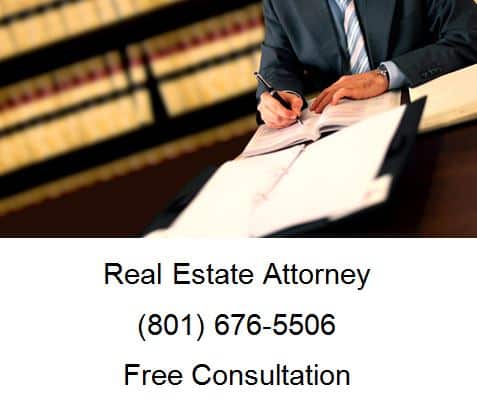

An easement is a legal term describing a situation in which someone allows another party to use a portion of land that they legally possess. There are many different types of easements in Utah, some consist of a prescriptive easement, an implied easement, an easement by necessity, etc. Before we get going too far, make sure you reach out to one of our Utah real estate lawyers if you have a specific question. One common example of an easement is when someone drives over their neighbor’s property to access their house on a shared driveway. Many utility companies have easements through property developments which allow them to enter and perform various services. This section provides information on legal issues that affect the easement holder (the person using the property) and the owner of the property being used.
The majority of easements are considered either affirmative or negative. If you have an affirmative easement, it means you have the right to do something, while the other party has the responsibility to do something with respect to the parcel. For example, an affirmative easement may give you the right to access a road on your neighbor’s property and requires the other party to allow access to the road. Blocking your access to the road, even though technically it’s on his or her property, violates the terms of the easement. These are the most common type of easement.
A negative easement, on the other hand, is a legally binding agreement to not do something with respect to a given parcel of land. For instance, someone who has a breathtaking view of the ocean may seek an easement to prevent her neighbor from obstructing that view in any way. These are much less common, particularly since homeowners’ associations often address these concerns.
Easements are created through a written document such as a will or contract, generally referred to as “conveyance in a deed.” As with wills and other legal agreements, it must be validated through the proper documentation, signatures, and delivery. In some rare instances, the court will base its decision on the existence of an implied easement that is based on circumstances. If the only way to access a property is through another party’s property, and the parties have been in agreement, then a court may create a formal easement based on this fact.
Once it has been created, the easement is legally binding and must be maintained. If you hold an easement on another party’s property, you have the right to maintain and improve that parcel of land as long as it doesn’t disturb or otherwise interfere with the other party’s property rights. Easements may be terminated either through another legal agreement or by proving the “intent to abandon” the easement, if no legal action is taken.
A conservation easement is a legal agreement between a property owner and another party (often a government entity) restricting development. Typically these types of easements are sought out to protect natural resources, including animal habitat and open space. Usually the landowner either donates or sells the easement, but they must be for purely conservational purposes and carried out voluntarily. If certain conditions are met, the landowner who grants a conservation easement may be eligible for certain tax incentives.
Preservation easements are very similar, but are intended to protect privately owned historic properties. The property owner who grants the easement likely will be restricted in what it can do with the property, but also receives certain tax incentives (specifically, it is not taxed higher after the property is developed). So if a historic building has a conservation easement — often through charitable donations — the property owner must adhere to certain rules.
Easement Lawyer Free Consultation
When you need legal help with an easement, please call Ascent Law for your free consultation (801) 676-5506. We want to help you.
8833 S. Redwood Road, Suite C
West Jordan, Utah
84088 United States
Telephone: (801) 676-5506
Recent Posts
Can Stepparents Adopt Their Stepchildren?

